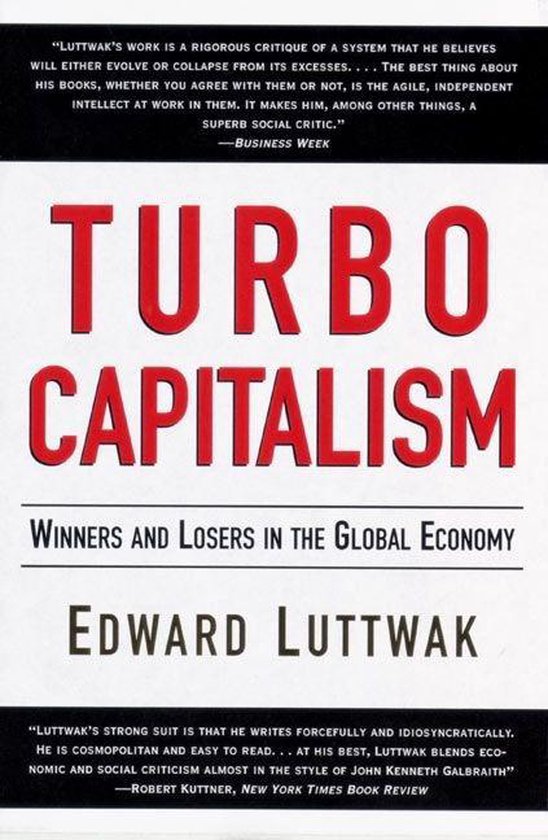
Turbo-Capitalism
-
AuteurWeidenfeld & Nicolson
- Uitgeverij-
- Jaar-
'Turbo-Capitalism' by Weidenfeld & Nicolson is a compelling exploration of the rapid and often unchecked expansion of capitalist systems across the globe. This book delves into the mechanisms that drive turbo-capitalism, examining how it accelerates economic growth while simultaneously exacerbating inequality and environmental degradation. With a keen analytical eye, the author unpacks the complex interplay between market forces, government policies, and societal values, offering readers a nuanced understanding of the challenges and opportunities presented by this economic model. The book is a must-read for anyone interested in the future of global economies and the societal impacts of unfettered capitalism.
Beschikbare exemplaren
€13.95
REDELIJK